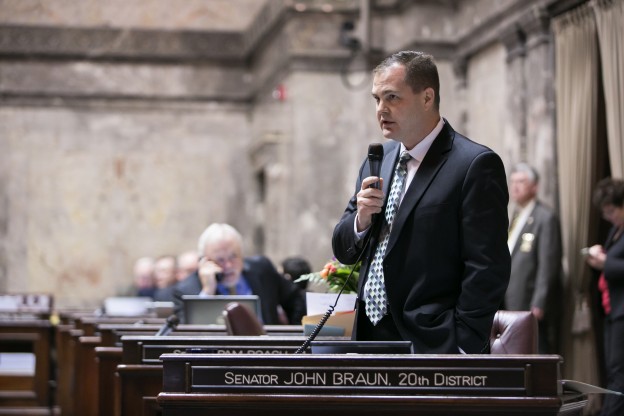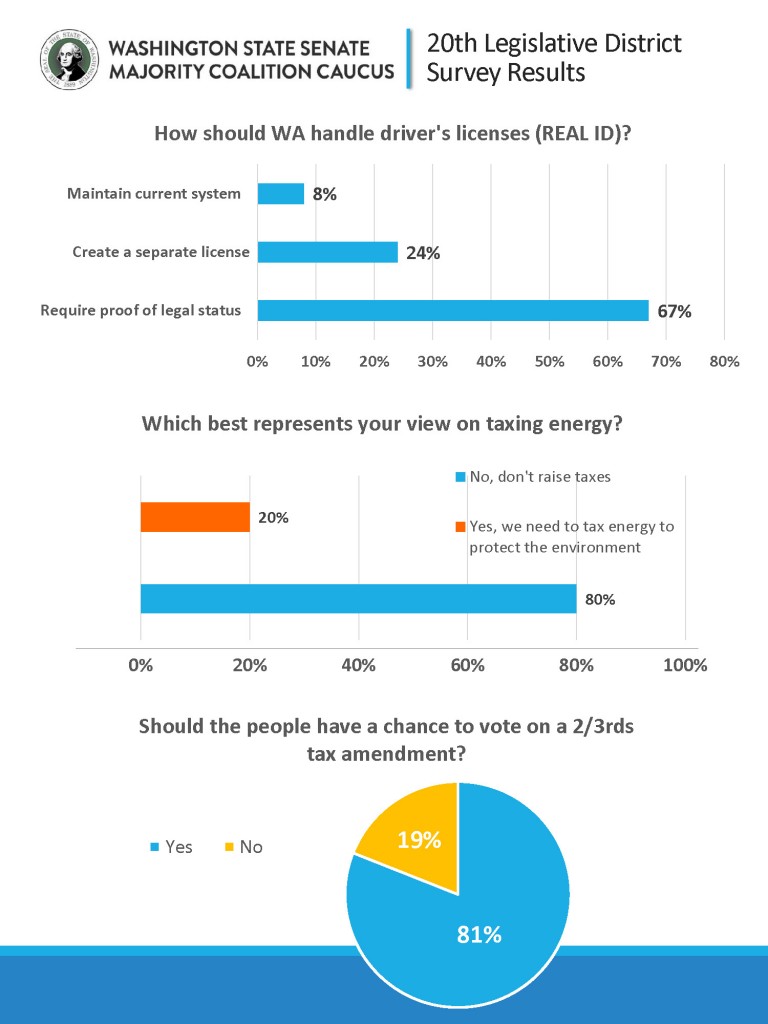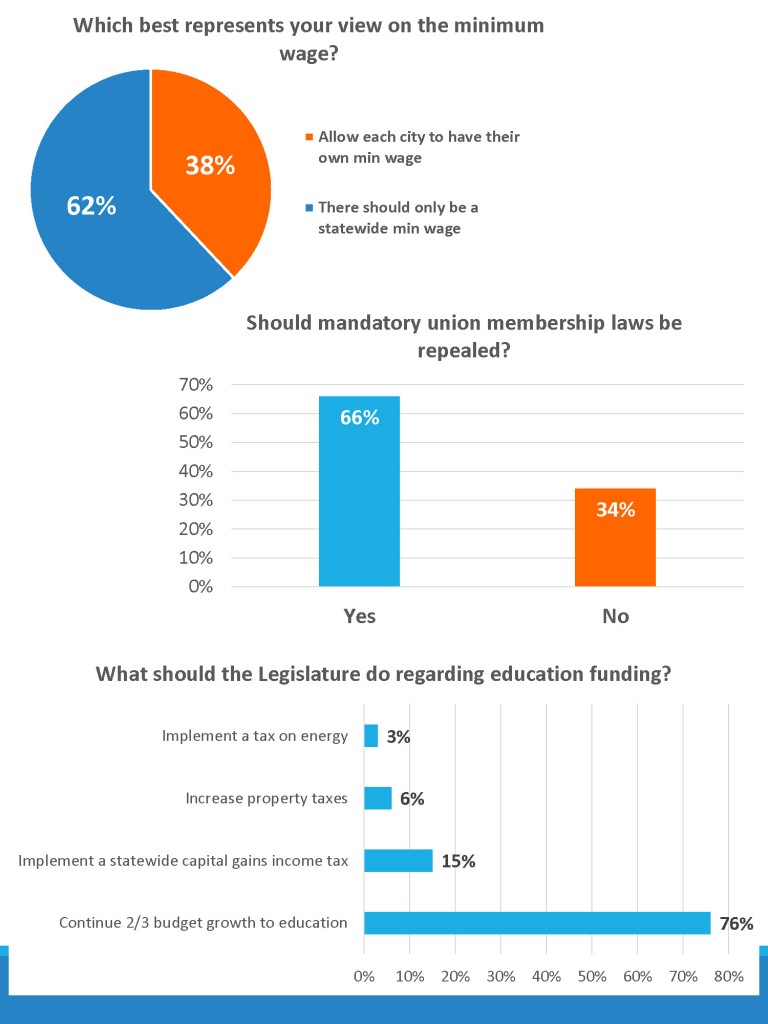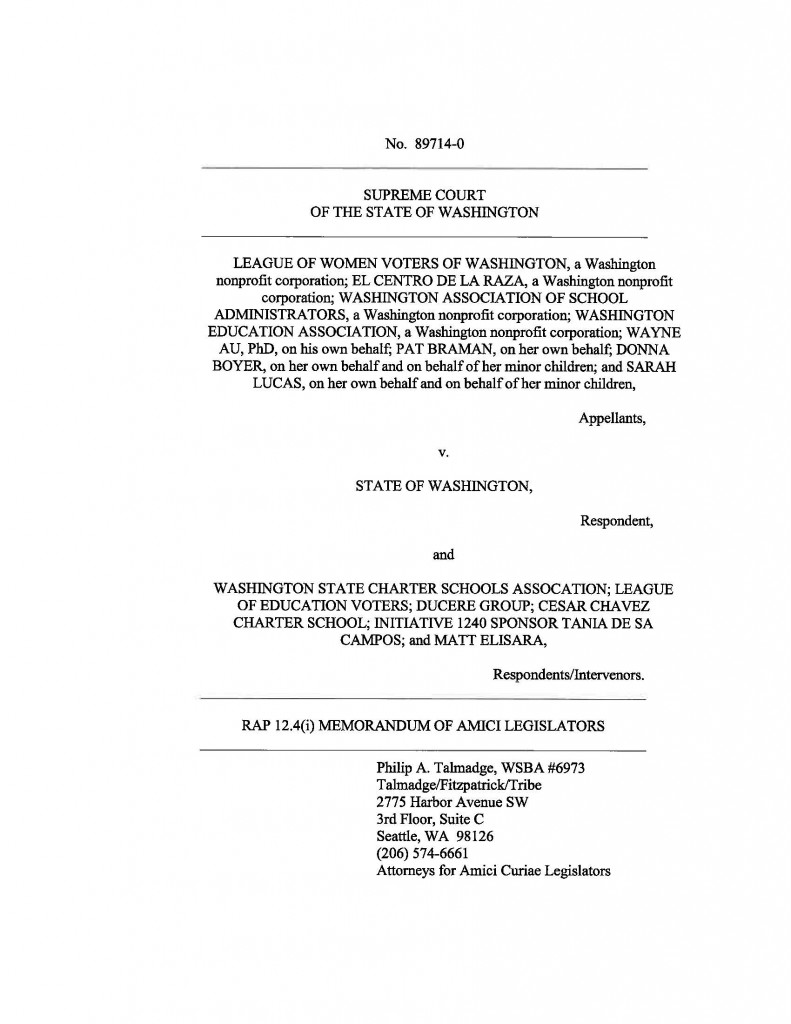Greetings,
For the past 30 years, starting in the early 1980s, growth in general government spending outpaced the state’s investments in public education. Billions of dollars were diverted from the state’s paramount duty toward other state programs. As the state’s portion of education funding declined, that burden shifted to school-district taxpayers and their ability to raise funds through local levies. These two issues have culminated in the McCleary decision where the state Supreme court found the state was not meeting is constitutional duty to adequately provide for K-12 education.
In just a few short years, our Senate majority has been able to change that and make education the first priority in the state’s budget. Since 2013, education spending has increased by $4.5 billion and 47 percent of spending in the most recent budget is going to our K-12 system. However, funding is only part of the challenge. We also need common sense reforms to give teachers the freedom to do their jobs well and help schools and students succeed.
Looking ahead at the upcoming legislative session, we have more work to do to make the right investments for our students and provide a more equitable solution for school funding by the 2018 deadline. As we continue to prioritize schools in our state there will be many issues to address, but funding is a major piece of the puzzle. State Sen. Andy Hill, our lead budget writer, recently put out a series of policy papers that goes in depth on education funding and reform. Please see below for links to the three-part series.

Part I: 30 Years of Shirking the Paramount Duty & Understanding the Ruling that Followed
“It is the paramount duty of the state to make ample provision for the education of all children residing within its borders[.]”
– Article. 9, Sec. 1 of the Washington State Constitution
Despite being ascribed preeminent importance in Washington’s Constitution, education was a decidedly declining state budget priority over the last generation as non-education spending dominated budget growth from 1983 to 2013… Click Here to Read More
Part 2: Turning the tide–state spending radically reprioritized under Majority Coalition Caucus
The Majority Coalition Caucus (MCC) took the reins of the Senate in 2013, determined to turn the tide of the previous 30 years and reprioritize education. The results are as follows… Click Here to Read More.
Part 3: What’s left? Bringing fairness to K-12 funding via levy reform,debunking the myth that new taxes are needed,and the vital importance of education policy reforms
The quality of a child’s education should not depend on their ZIP Code.That is a fundamental principle that unites all of us in the Legislature, and while we cannot ultimately control the quality of a child’s education, we in the Legislature must ensure the funding system in place is equitable, regardless of where a child lives in our state.Sadly, that is not the case at present–and it must be remedied… Click Here to Read More.
Contact Me:
Email:John.Braun@leg.wa.gov
Olympia Office:
407 Legislative Building
PO Box 40420
Olympia, WA 98504-0420
Phone:(360) 786-7638
Website: johnbraun.src.wastateleg.org
Share my E-newsletter
Do you know others who live in our district who may not be receiving my e-news updates? Please feel free to forward this e-mail to them or click on the share button below.

|















 Olympia Update
Olympia Update
 Survey Results
Survey Results






